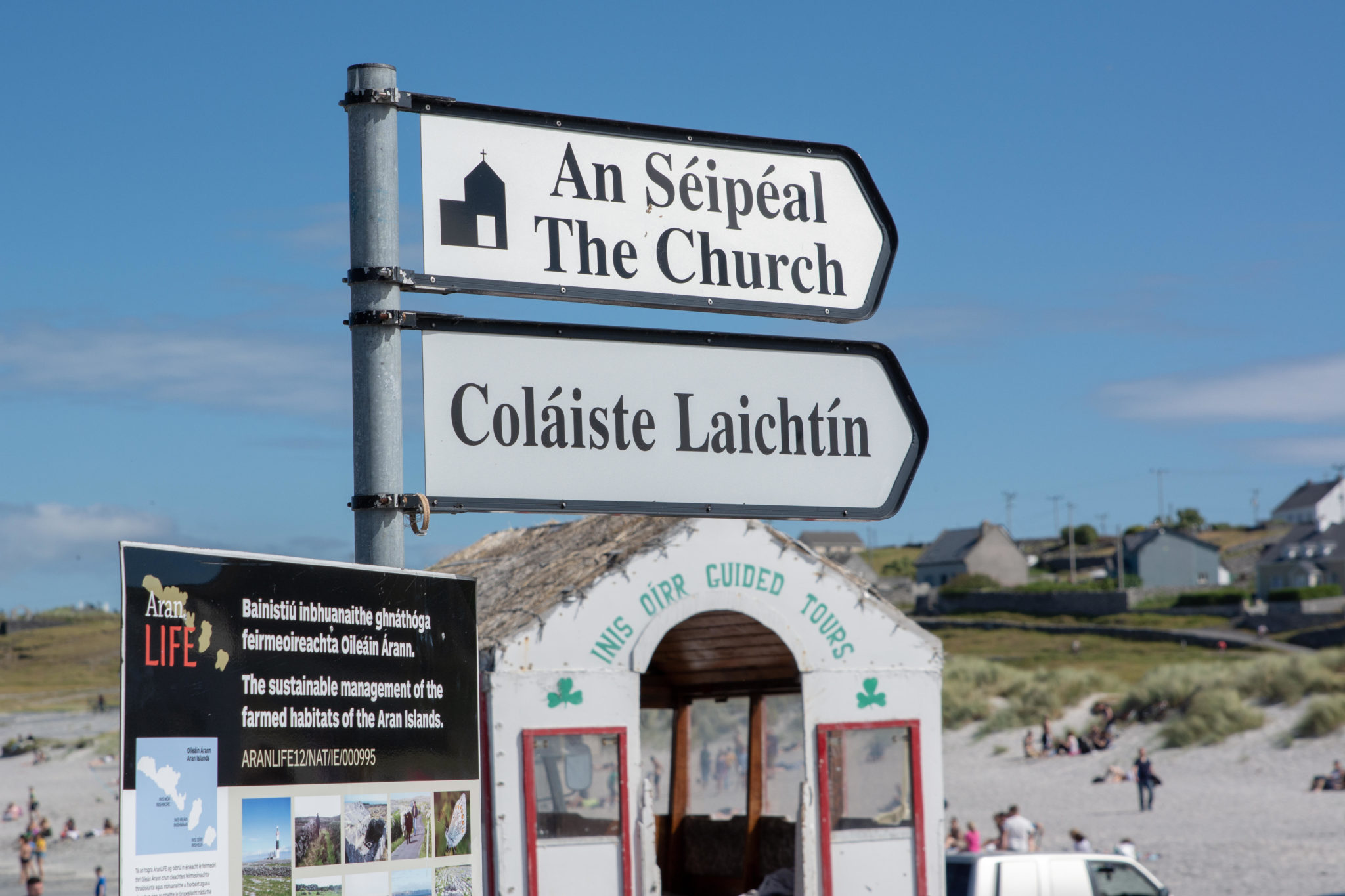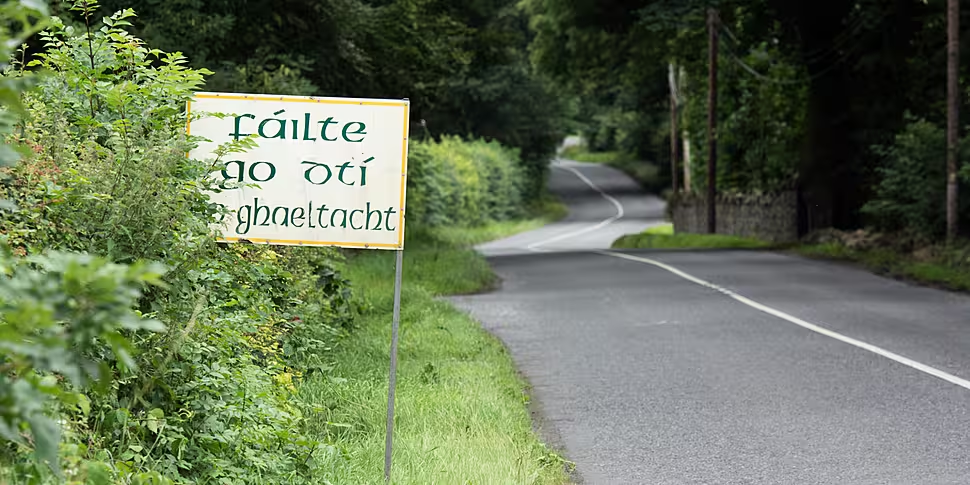Conradh na Gaeilge has proposed a “radical and new” plan to save the Irish language.
Efforts to promote the language have been a core part of State policy since independence a century ago.
However, Conradh na Gaeilge feels strongly that current policies are insufficient and a “wholly different approach” is needed if Irish is to thrive.
“Over the last 10 years, the levels of people who speak Irish daily is dropping, slightly, but dropping,” General Secretary Julian de Spáinn told Newstalk Breakfast.
“The levels of people who have Irish in the population as a percentage is dropping as well; we’re below 40% now, we’re down at 37%.
“As we go along, things are slipping and what we’re saying is we need to do something radical and do something new to change that.”
 Sign in the Irish language on Inis Oírr, one of the Aran Islands, off the west coast of Ireland
Sign in the Irish language on Inis Oírr, one of the Aran Islands, off the west coast of IrelandMr de Spáinn said there is “huge interest” in the general population but most people have few opportunities to use their Irish.
He wants State funding for the language to rise from 0.17% to 0.4% and has a number of ideas about how it should be spent.
“Outside of the Gaeltacht, we’re talking about having Irish language centres in towns and cities all around the country where you would have a hub, a focus for the language,” he said.
“You could bring people in, you could have coordinators of the language to do events and different things - for young people especially.
“You’d have a Gaeltacht scholarship scheme that would have about 10,000 scholarships available… because it is very expensive, it’s nearly €1,000 in fees in the summer.”
Shortage of Mná agus Fir Tí
Another issue threatening the language’s long-term viability is the shortage of Mná agus Fir Tí who host students when they visit the Gaeltacht in the summer months.
As well as forming an important part of the Gaeltacht’s economy, summer colleges instil in many teenagers a love for the language they never knew they had before.
If the shortage is to be rectified, Conradh na Gaeilge feels the planning system needs a complete overhaul.
“One of those things is to look at the planning and the housing in the Gaeltacht as well - because that is a huge problem,” Mr de Spáinn.
“We would propose in the future that you would have an encouragement there for people who are going to build in the Gaeltacht, that you would have that extra space in their plan so that they can take students in during the summer.”
Conradh na Gaeilge will be formally launching its Plean Fáis (Growth Plan) at Dublin’s Mansion House today at noon.
You can listen back here:
Main image: Sign in Irish language welcoming visitors to the Gaeltacht in County Meath.









